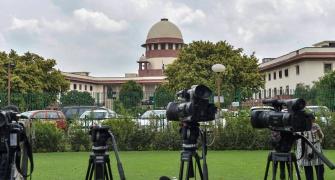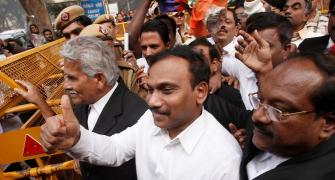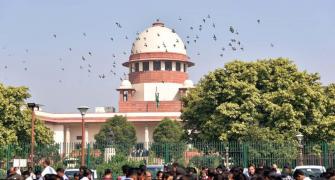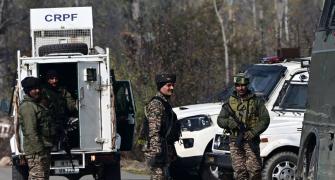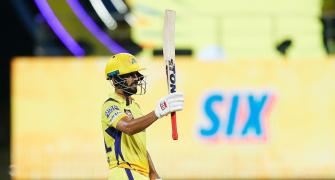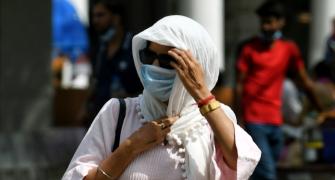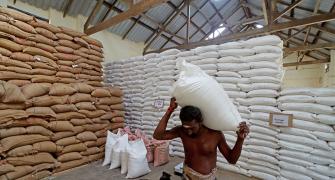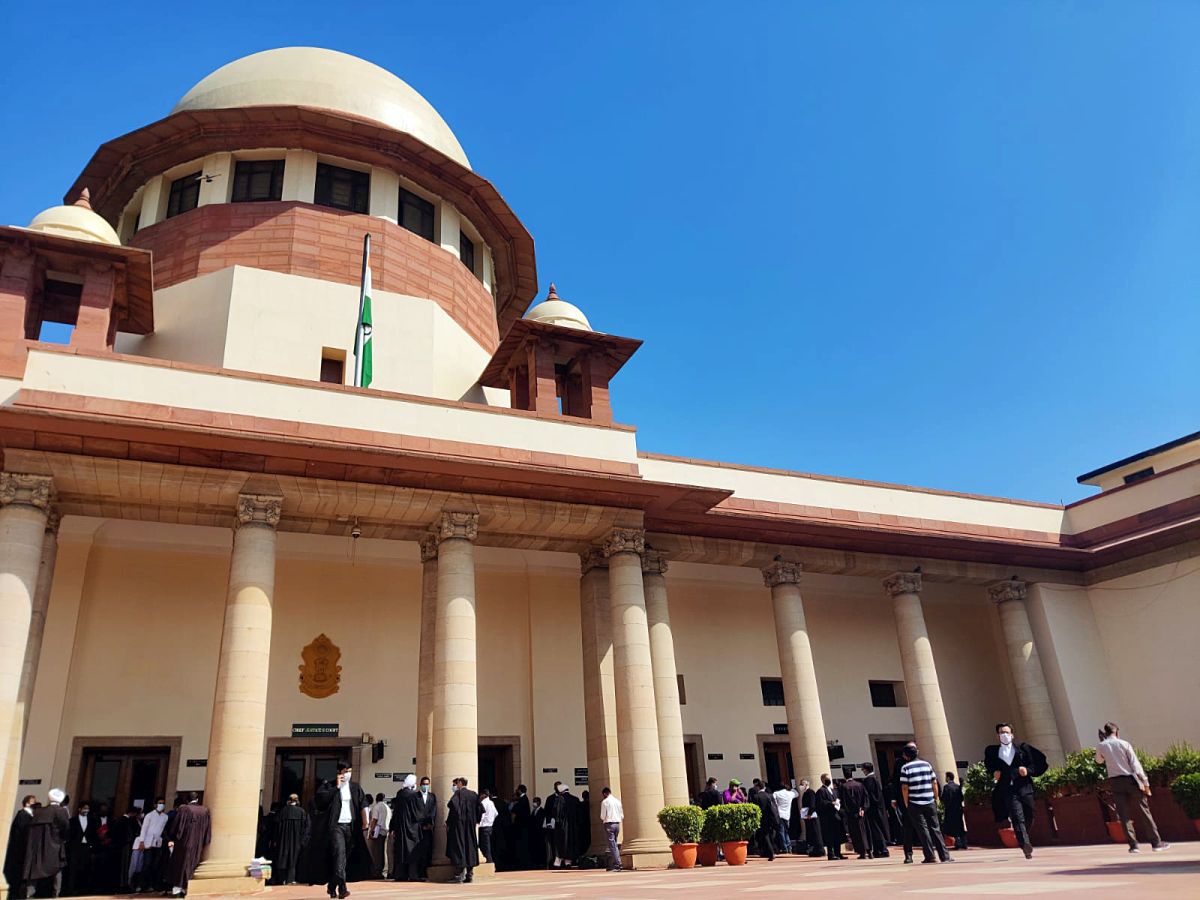The Supreme Court said on Wednesday it will examine whether the immunity granted to lawmakers from prosecution for taking bribe to make a speech or vote in Parliament and state legislatures extends to them even if criminality is attached to their actions, as it began reconsideration of its 1998 judgement in the JMM bribery scandal that rocked the country 25 years ago.
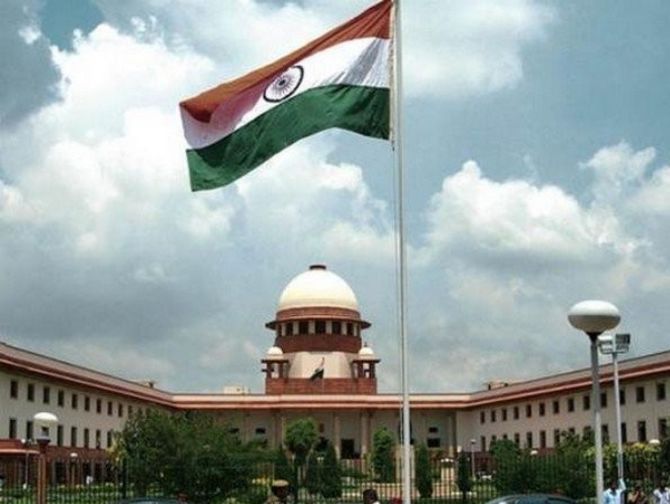
The apex court's 1998 verdict granted MPs and MLAs immunity from prosecution for taking bribes to make a speech or vote in legislature.
At the outset of the day-long proceedings, Solicitor General Tushar Mehta urged the seven-judge Constitution bench headed by Chief Justice D Y Chandrachud that the court need not go into the immunity aspect under Article 105 of the Constitution and the controversy, possibly, can be narrowed down in view of the fact that the offence of bribery is complete when a bribe is given and accepted by the lawmaker, something which can be tackled under the Prevention of Corruption Act.
Article 105(2) stipulates that no member of Parliament shall be liable to any proceedings in court in respect of anything said or any vote cast in Parliament or any committee thereof. A similar provision exists for MLAs under Article 194(2).
The bench, referring to the 1998 judgment, said it was held that irrespective of the criminality, immunity is available to the lawmakers.
”We will have to ultimately deal with the issue of immunity as well. Since we are sitting in the combination of seven (judges), we are not required to see the immunity in all circumstances. We have to decide a very narrow issue whether that immunity is attached (to lawmakers) when there is an element of criminality,” said the bench, which also comprised justices A S Bopanna, M M Sundresh, P S Narasimha, J B Pardiwala, Sanjay Kumar and Manoj Misra.
The bench, however, took note of the submissions of the solicitor general that it should not venture into the larger conspectus of immunity available to the lawmakers.
Senior lawyer Raju Ramchandran also urged the court to not interfere with the carefully considered and well reasoned 1998 judgment which was not unconscious of constitutional morality and that "there is no ground to upset the view taken".
”Political corruption is the fact of life and misuse of law is equally a fact of life... and this court has come to help the citizens and lawmakers who have suffered unjust persecution,” Ramchandran told the court, adding lawmakers were given immunity from prosecution to protect them from unjust harassment.
”Should we grant immunity to political corruption just on the ground of apprehension of misuse of the law?” Chief Justice Chandrachud quipped.
Since this apprehension of misuse has been at the root of grant of parliamentary privilege from historical times, the court is only being asked to continue what has stood the test of time, Ramachandran said.
”We should not be entering into issues which do not arise before us. The law has evolved in our country... Because the whole purpose was to encourage free speech and free dialogue in Parliament and in state legislatures and that we must preserve. The legislatures in both the Union and the states are an important part of the nation,” the CJI said.
The court referred to Article 105(2) and Article 194(2) of the Constitution relating to immunity to lawmakers.
”Suppose a legislator has taken a bribe for casting a vote in a particular manner or making a speech...the court cannot invalidate the vote because it was motivated by a bribe. Suppose a person is convicted for an offence of bribery, can the court say the vote should be excluded from counting parliamentary majority. It's still a valid vote,” the bench said.
The bench, however, said immunity cannot be attached when there is ”criminal wrongdoing”.
”So once an MP either casts his vote and speaks in the House, he will not be answerable to any court or in any proceedings for the vote which he has cast and the speech made,” it said, adding one cannot dispute a legislation on grounds that the votes cast in its favour was vitiated by criminal wrongdoing.
”But that immunity, which attaches to vote, does not attach to crime that takes place independent of casting of vote or rendering of speech,” the bench observed.
Senior advocate P S Patwalia, assisting the bench as an amicus curiae (friend of court), said the object of Article 105 was not to protect lawmakers against ordinary criminal law but to protect ”the integrity of House” and its legislative proceedings.
The bench asked whether immunity against prosecution will be available if bribe is paid to lawmakers to not speak or vote.
”The offence (of bribery) is complete if the bribe is accepted... Even under normal law, if you take a bribe for doing a legal act, you are guilty. Even if you take a bribe and don't do the act, you are guilty. Only offer and acceptance have to be proved. That is the law,” Patwalia said.
Senior advocate Gopal Sankaranarayanan, appearing for an intervenor, supported the revisiting of the 1998 judgment and will commence his submissions on Thursday.
Nearly 25 years after the JMM bribery scandal rocked the country, the apex court had on September 20 agreed to reconsider its judgment, saying it was an important issue having a significant bearing on "morality of polity".
A five-judge bench of the apex court had decided to refer the issue to a larger seven-judge bench.
A five-judge Constitution bench had in its majority verdict delivered in the PV Narasimha Rao versus CBI case held that parliamentarians have immunity against criminal prosecution for any speech made and vote cast inside the House under Article 105(2) and Article 194(2) of the Constitution.
The issue came under the Supreme Court's lens again in 2019, when a bench headed by then chief justice Ranjan Gogoi was hearing an appeal filed by Sita Soren, JMM MLA from Jama and daughter-in-law of party chief Shibu Soren, who was an accused in the JMM bribery scandal. The Justice Gogoi-led bench had referred to a five-judge bench the crucial question, noting it had "wide ramification" and was of "substantial public importance".
Sita Soren was accused of taking bribe to vote for a particular candidate in the Rajya Sabha election in 2012. She had contended that the constitutional provision granting lawmakers immunity from prosecution, which saw her father-in-law being let off the hook in the JMM bribery scandal, be applied to her.
She had moved the apex court against the Jharkhand high court order of February 17, 2014, refusing to quash the criminal case lodged against her.
The three-judge bench had then said it will revisit the SC verdict in the sensational JMM bribery case involving Shibu Soren, a former Jharkhand chief minister and ex-Union minister, and four other party MPs who had allegedly accepted bribes to vote against the no-confidence motion threatening the survival of the P V Narasimha Rao government in 1993.
The Narasimha Rao government, which was in a minority, survived the no-confidence vote with their support.
The CBI registered a case against Soren and four other JMM Lok Sabha MPs but the Supreme Court quashed it citing immunity from prosecution they enjoyed under Article 105(2) of the Constitution.

